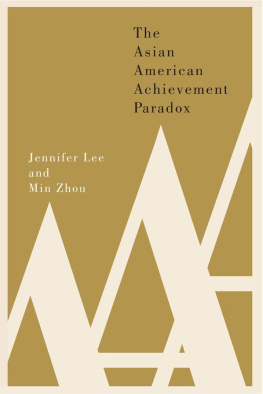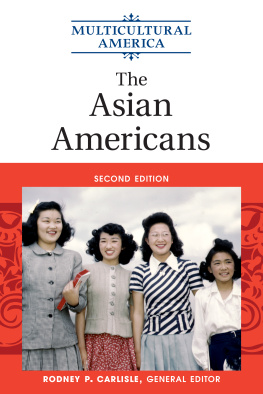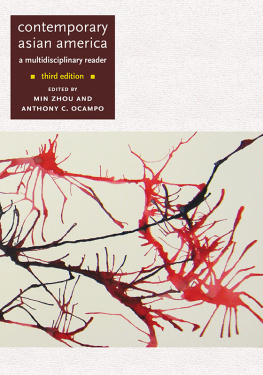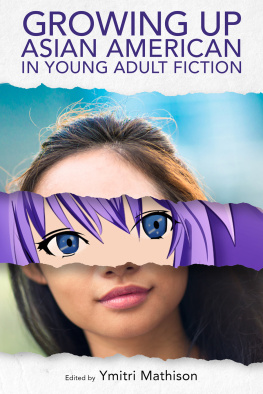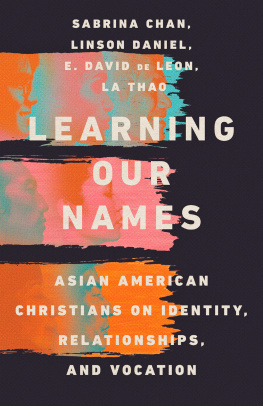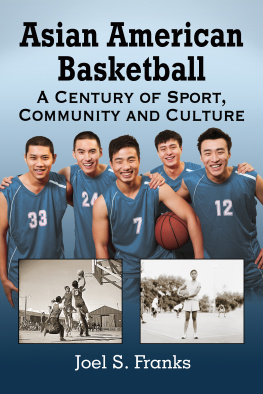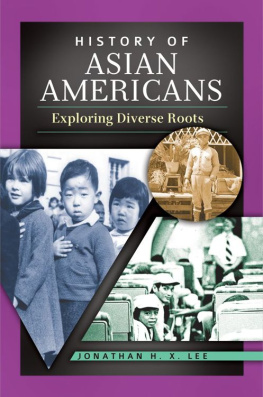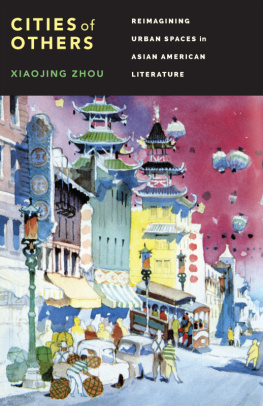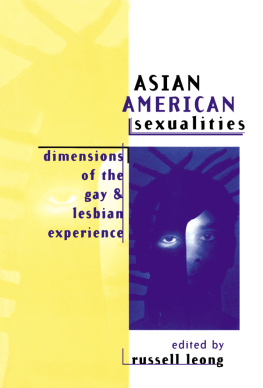Preface
Following a recent public lecture in her hometown of Philadelphia, Jennifer Lee was approached by a female member of the audience who asked where she had gone to high school. The woman said that she was curious because, as a retired high school teacher, she wanted to know about Jennifers educational background. Jennifer answered, after which the woman promptly seized the opportunity to convey her opinion of Korean students:
I was so happy whenever I had Korean students in my classes. They were my best students; they were so bright and worked so hard! And some of these kids, they have parents who dont even speak English.
The retired teachers comment, unrelated to her original question, did not come as a surprise. Both authors had heard it many times before about Korean students and about Asian American students more generally. Positive comments such as these reflect a puzzle for many Americans about the academic achievement of the children of Asian immigrants (the 1.5 and second generation). How do the children of Asian immigrants and refugeeseven those whose parents have only an elementary school education, do not speak English, and work in restaurants and factoriesgraduate as high school valedictorians, earn admission to prestigious universities, and hold high-status professional jobs? Vexed by Asian Americans exceptional achievement outcomes, some pundits point to Asian culture: because Asian Americans possess the right cultural traits and place a high value on education, they claim, Asian American students outperform their non-Asian peers, including native-born whites.
Allow us to get personal for a moment and briefly reflect on our own experiences of growing up in a Korean immigrant family as a member of the 1.5 generation, and raising a child of the 1.5 generation as a Chinese immigrant parent, respectively. Jennifers parents decided to immigrate to the United States because her father wanted to pursue his PhD at Temple University and work with a professor there whose research he admired. Hermotherwho was a nurse in Koreaobtained an immigrant visa for her family, including three-year-old Jennifer and her one-year-old sister, Stephanie, which was possible because the change in U.S. immigration law had opened the doors to Asian immigrants and gave preference to highly skilled applicants.
Upon settling in Philadelphia, Jennifers parents quickly realized that they could not adequately support a family of four based on a nurses salary alone, so they took an economic detour and decided to open a business in a predominantly African American neighborhood in West Philadelphia selling sneakers. With no savings or wealth to speak of, her parents borrowed money from family members until they had accumulated enough to open a business. After seven years of running the sneaker store, her father returned to graduate school and earned his PhD, while her mother continued to support the family by running the business alone. Jennifers parents earned enough to send both daughters to private high school and college, and both attained graduate degrees. Jennifer graduated from Columbia University and later earned her PhD there. Stephanie graduated from Boston University and the University of the Sciences in Philadelphia. Stephanie is now a pharmacist, and Jennifer is a professor.
While Jennifers parents raised their daughters to try your best in school, neither was a Tiger parent who employed strict, relentless, demeaning parenting practices. They did believe, however, that trying your best should result in straight As and admission to an Ivy League university. They supported their belief by providing their daughters with a wealth of class resources: a home in a middle-class suburb of Philadelphia, private school education, educational books, SAT prep courses, and extracurricular activities such as gymnastics and piano lessons (which lasted only a few years since neither daughter was interested enough in music to practice much before the weekly lesson). For Jennifers immigrant parents, being able to provide their 1.5-generation daughters with these resources was meaningful because such resources had been unavailable to them when they were growing up in Korea. Furthermore, her parents felt that it was their obligation to fully support their daughters, especially because they had the class resources to do so.
While Jennifer is a member of the 1.5 generation, Min Zhou is the mother of a 1.5-generation Chinese and the mother-in-law of a second-generation Vietnamese. Mins parents, who still live in China, did not have the opportunity to go to college, but education for their children was always a priority and doing well in school was non-negotiable. Growing up in turbulent times during the Chinese Cultural Revolution, Min could not attend college after graduating from high school, so she worked in a factory for five years before an opportunity to attend college presented itself. She was among the fortunate few to gain admission to college when China reopened its higher education entrance examination. After college, she migrated to the United States, leavingbehind her husband and ten-month-old son in China and having only a single $50 bill in her pocket, to pursue her PhD at SUNYAlbany. Because of her foreign student visa, Min worked odds jobs under the table as a babysitter, housekeeper, hotel maid, restaurant dishwasher, and seamstress to make ends meet while she was in graduate school. After she attained a job as an assistant professor at Louisiana State University, she, like Jennifers mother, sponsored her family to migrate to the United States under the visa preference category favoring the highly skilled.

